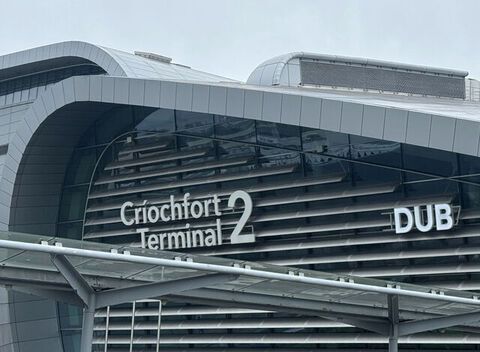By Peter McDermott
An error by the New York Department of Buildings helped Anglo Irish Bank in its campaign to raise $50 million in Ireland for two properties that it falsely claimed could be converted into commercial hotels, the Irish Echo has learned.
The department’s records show that, in June 2007, it signed off on plans for physical work and change of use at the Beekman Tower on Mitchell Place, at 49th Street and First Avenue in Manhattan, and the Eastgate, on 39th between 2nd and 3rd Avenues, on the same day they were submitted. Permits for the work were issued a few days later.
A source professionally familiar with New York laws in the area said: “The Department of Buildings has absolutely no authority to issue permits or approvals at variance with zoning.”
He said that the approvals should be audited and revoked.
“The permits, as issued, are not worth the paper they are written on,” he added. “Any variance from zoning must be granted by the Board of Standards and Appeals after extensive public hearings before the BSA and local Community Boards.”
The Beekman Tower clearly opted in the 1960s to be an “apartment hotel,” which, though it may offer some of the features of a commercial or “transient hotel” such as maid service, is essentially a residential building in a residentially-zoned block. The Eastgate is a little different in that it is legally a commercial hotel from floors 2 through 7, but an apartment hotel from floors 8 through 25, which it can’t convert because the commercial portion is already overbuilt.
This is just one aspect of a case that has been before the Commercial Court in Dublin in recent weeks - though its significance hasn’t been a focus of local media coverage - and is now being considered by the judge. The defendant is Anglo Irish Bank, which has been at the center of the Irish financial meltdown.
The bank’s name has been well known to New York officials because of its status as mortgage holder in several controversial real-estate deals.
The Beekman/Eastman episode represented a new departure, however, in that Anglo Irish itself acquired the properties via a Delaware-owned subsidiary — Mainland Ventures — it set up for the purpose. Anglo Irish, in essence, lent itself $100 million for the deal, which it closed by putting down a $10 million non-refundable deposit. The following year it solicited a group of Irish investors in its effort to raise the additional $50 million needed for renovations of the properties. Up to 50 of these “high net worth” individuals gave money to a “New York Hotel Fund.”
One of them was Gerard McCaughey, currently a resident of Manhattan Beach, Calif., who is taking the “pathfinder” action against Anglo Irish (the Republic’s legal system doesn’t have a class-action type of suit). On a visit to New York in 2008, McCaughey discovered that not only had little or no work been done on the two buildings but that there were serious questions about their certificates of occupancy and zoning that had not been disclosed to him and his fellow investors.
“Why Anglo Irish Bank got involved with buildings that didn’t have the appropriate certificates of occupancy and the right zoning is anybody’s guess,” the Echo’s source said. “Anybody who has ever bought a house or an apartment knows that you don’t go near an American bank unless you have the certificate of occupancy; they would laugh you out of the office.”
The new owners — or their lawyers at least - apparently had a fallback plan. The source believes that it is likely that they made a case for grandfathering in based on “continuous use” as a commercial hotel since the 1960s. Here, though — if that’s true — it was the Department of Buildings that showed lack of due diligence as there is a great deal of evidence to the contrary, particularly in the case of the Beekman.
The landmarked Mitchell Place structure was built in the late 1920s as the Panhellanic Tower, a residence and club for young university-educated women who belonged to national Greek-letter sororities and had come to work in the city.
In the mid 1960s, the Beekman Tower was entirely renovated as an apartment hotel, a type of residence popular on the East Side that appealed to wealthy people who didn’t want a paid staff of their own.
Two certificates of occupancy in the records show that the Beekman was an apartment hotel in 1966 and 1969, though, as alluded to, it could have elected at the time to be a commercial hotel. The dates are significant because the law - which had been entirely overhauled in 1961 - allowed for a two-year gap when defining “continuous use.” So the fact that it was an apartment hotel for at least a three-year period would undermine its case for grandfathering in as a commercial hotel based on continuous use.
An advertisement also dated to the late 1960s clearly presents the Beekman as a luxury residence. These days it advertises rooms on its website and highlights their cooking facilities, a traditional feature of an apartment hotel.
The Echo’s source believes that it would be an uphill battle in the tony Beekman Place neighborhood to change use to a full commercial hotel. “The chances would be better on 39th St,” he said of the Eastgate, which is adjacent to the Midtown Tunnel.
The Department of Buildings has not responded to Irish Echo questions about the status of the Beekman and the Eastgate.
However, a spokesperson for New York City Council Speaker Christine Quinn has said her office would look into the matter.
Editorial note: Anglo Irish has been under Irish government control since the near collapse of the country's banking system. The events described above precede this transfer of control.
PHOTO BY PETER MCDERMOTT









